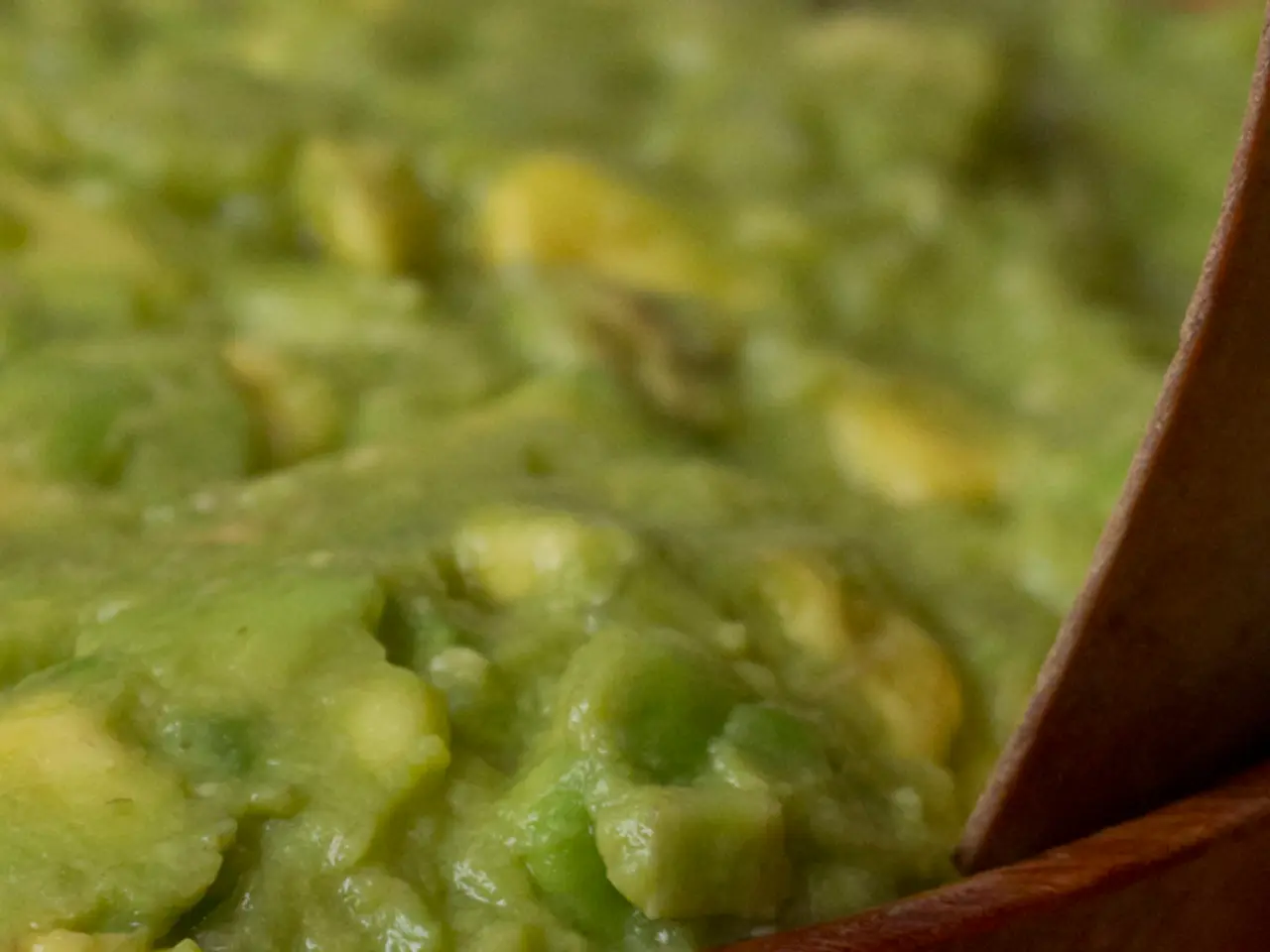Strategies for Removing Water Retention: Edibles to Consider
In the sweltering summer months, water retention, or edema, can become a common issue. The German Society for Nutrition (DGE) advises adults to drink at least 1.5 liters of water daily to stay hydrated, but certain foods can also help combat this issue.
To reduce water retention, particularly in hot weather, focus on potassium-rich foods. Bananas, coconut water, white beans, peas, lentils, fish like salmon, mackerel, halibut, trout, pistachio nuts, walnuts, peanuts, and dried fruits such as dates or apricots are all excellent sources of potassium.
High-water-content vegetables and fruits, such as cucumbers, watermelon, carrots, melons, apples, and tomatoes, increase hydration and promote urine production, helping to flush out excess fluids. Leafy greens like spinach, kale, Swiss chard, and field lettuce provide magnesium and antioxidants that support fluid balance and reduce swelling.
Citrus fruits, including oranges, lemons, and grapefruits, are rich in vitamin C, which strengthens blood vessels and may reduce edema. Omega-3 rich fish, nuts, and seeds offer additional benefits, reducing inflammation and improving blood flow, thereby aiding venous and lymphatic circulation.
In addition to these foods, diuretic herbal extracts such as Asparagus Racemosus can promote gentle fluid elimination without dehydration. Juices combining watermelon, cucumber, lemon, apple, melon, and ginger can be refreshing natural diuretics, especially suitable in hot weather.
Good hydration is key to reducing water retention. As heat increases, so does the demand for water. Physical exertion, sports, diarrhea, and vomiting may also require additional water consumption. Maintaining good hydration helps the body excrete more water through the kidneys, signalling there is no shortage, reducing water retention.
Preventing water retention also involves lifestyle choices. Creating a cool living environment and keeping the legs in motion are recommended. Prolonged sitting or standing, especially in the summer, can strengthen water retention due to decreased blood flow and increased pressure on veins.
In summary, a balanced diet rich in potassium-rich, high-water-content fruits and vegetables, leafy greens, citrus, omega-3 rich fish, and magnesium-rich nuts and seeds can help reduce edema and water retention in warm conditions. Incorporating these foods can support kidney function, improve circulation, and promote fluid balance effectively while keeping hydration optimal. Additionally, reducing salt intake and avoiding processed foods can further aid in combating water retention.
- Science indicates that certain medical-conditions, such as chronic-diseases like chronic-kidney-disease, can exacerbate water retention issues.
- In the realm of health-and-wellness, maintaining optimal hydration is crucial, especially during respiratory-conditions like hot summer months.
- Eye-health can benefit from dietary practices that promote hydration, as dehydration can lead to dry eyes.
- Hearing health is also affected by hydration levels, as dehydration can cause temporary hearing loss or tinnitus (ringing in the ears).
- Fitness-and-exercise routines are further boosted by good hydration, as it supports overall performance and recovery.
- Skin-care is another area where water intake plays a significant role, as dehydrated skin can lead to premature aging and skin-conditions like psoriasis.
- Therapies-and-treatments such as Asparagus Racemosus can aid in gentle fluid elimination and help combat water retention.
- Nutrition plays a vital role in women's-health, and a balanced diet can help manage various health issues, including water retention.




